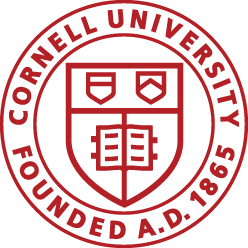ACLU v. Department of Homeland Security
On December 21, 2018, Cornell Law School’s First Amendment Clinic and the Reporters Committee for Freedom of the Press filed an amicus brief in support of the American Civil Liberties Union’s Freedom of Information Act suit against the Department of Homeland Security. The case, ACLU v. Department of Homeland Security, will be argued before the U.S. Court of Appeals for the Ninth Circuit.
At stake is whether DHS can withhold names of border patrol agents accused of verbal, physical, and sexual abuse of children in immigration detention centers. There are hundreds of allegations of abuse.
“Disclosure of the names…will allow Amici to report on how the federal government is administering its immigration policies,” states the brief. “In particular, Amici are committed to covering how the DHS and its components have handled allegations of child abuse, thereby arming the public with information that allows them to hold the government accountable for failing to protect one of the nation’s most vulnerable groups: unaccompanied immigrant children.”
George El-Khoury, a third-year student at Cornell Law School, drafted the brief, with supervision from Cortelyou Kenney, Assistant Director of Cornell Law School’s First Amendment Clinic. The Clinic collaborated with the Reporters Committee.
El-Khoury said, “FOIA’s mandate is clear: The government must disclose information unless it can prove that one of the limited exemptions to FOIA applies. The government has failed to do so and has tried to put the burden on the ACLU.”
The recently launched First Amendment Clinic will enable Cornell Law students to work on real cases involving free speech and freedom of the press. Through its caseload and curriculum, the clinic will train diverse, young lawyers in the skills needed to become effective advocates in the field.
The Reporters Committee for Freedom of the Press was founded by journalists and media lawyers in 1970 when the nation’s news media faced an unprecedented wave of government subpoenas forcing reporters to name confidential sources. Today it provides pro bono legal representation, amicus curiae support, and other legal resources to protect First Amendment freedoms and the newsgathering rights of journalists.
Information on this page is provided for archival purposes. All newly created PDFs on this website are accessible. For an accommodation for PDFs on this page, please contact law-web-ada@cornell.edu.
